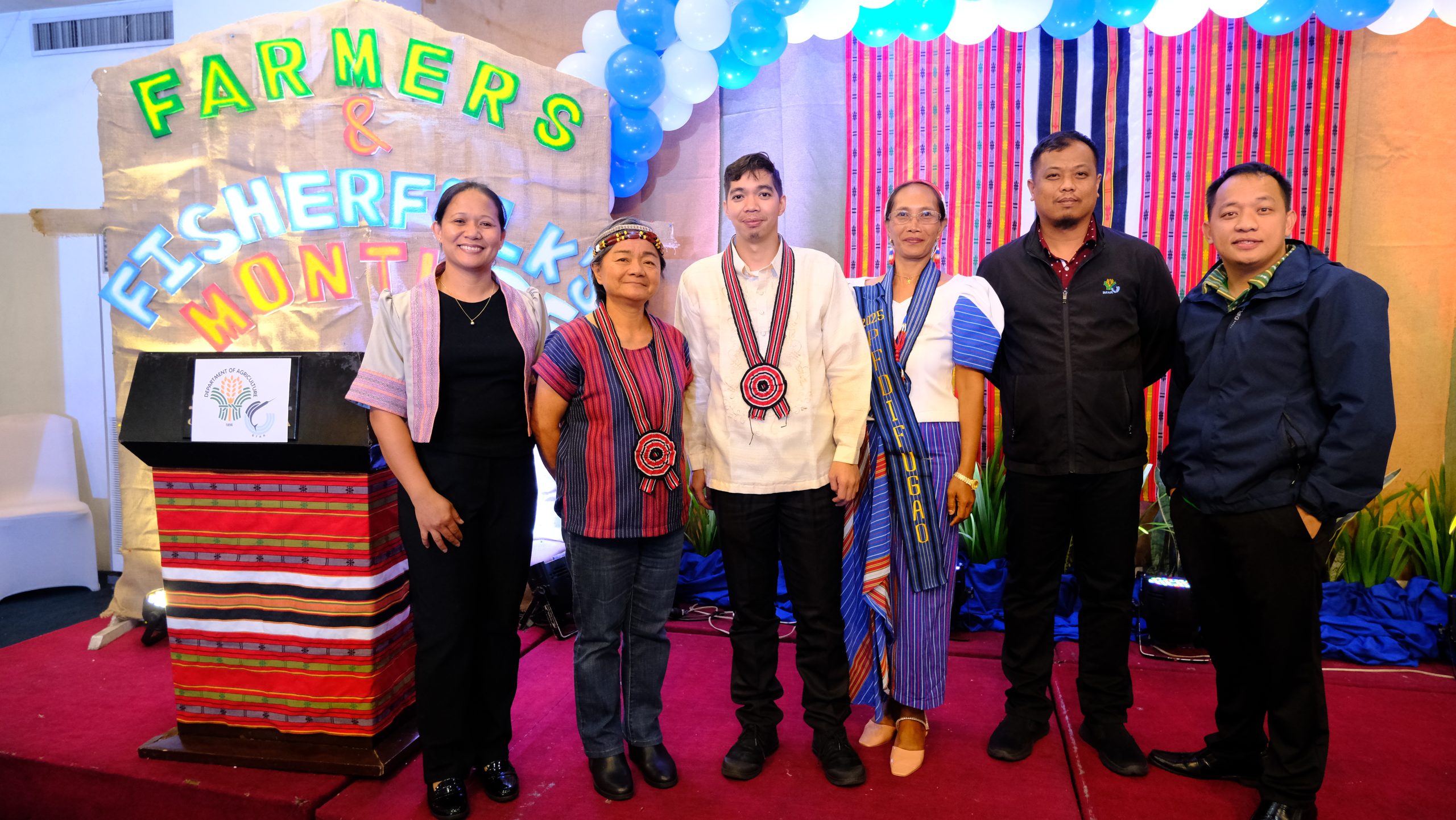
Baguio City — The Department of Social Welfare and Development Field Office Cordillera Administrative Region (DSWD FO CAR) has been acknowledged by the Department of Agriculture–Bureau of Fisheries and Aquatic Resources Cordillera Administrative Region (DA-BFAR CAR) for its initiatives in integrating agriculture and fisheries into its social welfare programs. This integration is seen as crucial in enhancing food security, promoting sustainable livelihoods, and supporting community development in the Cordillera region.
Lois June B. Fermin, Regional Director of BFAR-CAR, underscored the importance of embedding agriculture and fishery initiatives within the framework of social protection programs. “Traditionally, it’s really the practice of the Cordillerans—you won’t often see a lone fisherfolk,” Fermin said. “Whatever is available in the fishpond—whatever can be sold or profited from—could serve as another source of income, like sweet potatoes or aba (a local delicacy).”
The focus, she explained, is on holistic sustainability—bringing together various local resources to support livelihoods and reduce reliance on external aid.
Fermin highlighted the Cash-for-Training (CFT) initiative of the DSWD as a key example of this synergy, through which BFAR provides technical assistance and shares essential knowledge with even the most remote communities. “Our budget may be limited, so we can’t provide for every need,” she admitted, “but when it comes to technical guidance and knowledge sharing, we’re very willing to help anyone who reaches out to us.”
The collaboration among DSWD, BFAR, Local Government Units and local communities is already yielding positive results. In Aguinaldo, Ifugao, for example, farmers and fisher folk have come together not just to produce food but to strengthen social ties.
“It reinforces the traditional Cordilleran value of cohesiveness—we help one another,” Fermin remarked.
She also encouraged communities to start small, particularly with rice-fish farming, and expand over time based on their needs and capacity. “A fishpond is like a refrigerator—you can just go and get what you need when you need it,” she said. “Eventually, they can expand to better support their families and their community.”
Olive Jet Garcia, Provincial Fisheries Officer of Mountain Province, echoed these sentiments and emphasized the need for sustainability, especially in programs like Project LAWA at BINHI.
“For instance, we provide a full package—from feeds to finisher,” Garcia explained. “The idea is that the income earned from the harvest should be used to fund the next cycle, like buying new fingerlings. Sustainability means building a system that can continue on its own.”
However, Garcia also stressed the importance of accountability among beneficiaries. “It’s crucial to monitor these efforts, and communities should feel empowered to ask for assistance when needed,” she said. “Even with training, some individuals don’t follow proper feeding schedules. Overstocking, for instance, can lead to high fish mortality.”
To improve participation, Garcia suggested holding evening lectures to better accommodate the schedules of fisherfolk. “The problem is when the person who really needs the information isn’t present,” she said. “If they just hear it secondhand, they might not believe or fully understand it. That’s why we need continuous group sessions—to foster understanding and strengthen the community.”
Both Fermin and Garcia emphasized that true success hinges not only on government support but also on active community engagement. “If you accept a project, you have a responsibility to do what’s needed so we can see concrete results,” Garcia said. “The same effort people put into their other work should also be given to fisheries.”
The collaboration between DSWD and BFAR stands as a strong example of how communities in Cordillera are tackling food security issues. This partnership embodies integration, resilience, and a sense of shared responsibility—values deeply embedded in the culture and cooperation of the local population.# DSWD-CAR Social Marketing Unit – Novelle G. Ongat, Information Officer II, Disaster Response & Management Division and Wreyn Franzelle A. Pariñas, DSWD Government Internship Program 2nd Year BA Communication – University of the Philippines-Baguio




